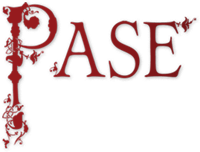Table of Contents
Top of page
Name
Summary
Distribution Map
Property List
Profile
Bibliography
Bottom of page
Ælfhelm 28
Ælfhelm of Watlington (Oxon.), fl. 1066
Male
DWP
4 of 5
Summary
Ælfhelm 28 was a free man with a moderate estate in east Oxfordshire TRE assessed at 5 hides and with a value of £4.Distribution map of property and lordships associated with this name in DB
List of property and lordships associated with this name in DB
Holder 1066
| Shire | Phil. ref. | Vill | DB Spelling | Holder 1066 | Lord 1066 | Tenant-in-Chief 1086 | 1086 Subtenant | Fiscal Value | 1066 Value | 1086 Value | Conf. | Show on Map |
|---|---|---|---|---|---|---|---|---|---|---|---|---|
| Oxfordshire | 12,1 | Watlington | Ælfelmus | Ælfhelm of Watlington | - | William, abbot of Préaux | - | 5.00 | 4.00 | 5.00 | B | Map |
| Totals | ||||||||||||
Profile
Ælfhelm 28 was described as a free man in DB and his estate was at Watlington, where the Ickneild Way skirts the scarp slope of the Chilterns in east Oxfordshire. An undated writ of King William (William 1) grants ‘the land of Ælfhelm and Wulfric of Watlington’ (terram scilicet Alfelmi et Wulrici de Watintona) to Préaux Abbey, the holder in 1086 (Bates 1998: no. 219, p. 699); DB makes no reference to Wulfric (Wulfric 77) and his relationship to Ælfhelm remains unclear. This estate was referred to as Watcombe in records from 1221 onwards and almost certainly corresponds to the part of Watlington parish now called The Howe (Lobel 1964: 210-52); this location has been adopted here for mapping purposes.It is possible that Ælfhelm 28 was the same man as Ælfhelm 37, whose TRE estate of 3 hides in north Hampshire lay about 30 miles from Watlington and so was close enough for the two estates to have been held by the same person. The possibility cannot be ruled out; but there is no other evidence to associate the estates or their pre- or post-Conquest holders, the name Ælfhelm was fairly common and it remains more likely than not that Ælfhelm 28 and Ælfhelm 37 were different people.
Bibliography
Bates 1998: Regesta Regum Anglo-Normannorum: The Acta of William I (1066–1087), ed. David Bates (Oxford: Clarendon Press, 1998)
Lobel 1964: A History of the County of Oxford: Volume 8: Lewknor and Pyrton Hundreds, ed. M. D. Lobel (London, 1964)
